What did I do during my first covid-19 lockdown – well I was introduced to Bee Keeping.
I didn’t realise the amount of work that is required just to look after some small insects that provides us the nectar of life freely (I am saying freely I did get stung few times for disturbing their peace / house – serves me right lol).
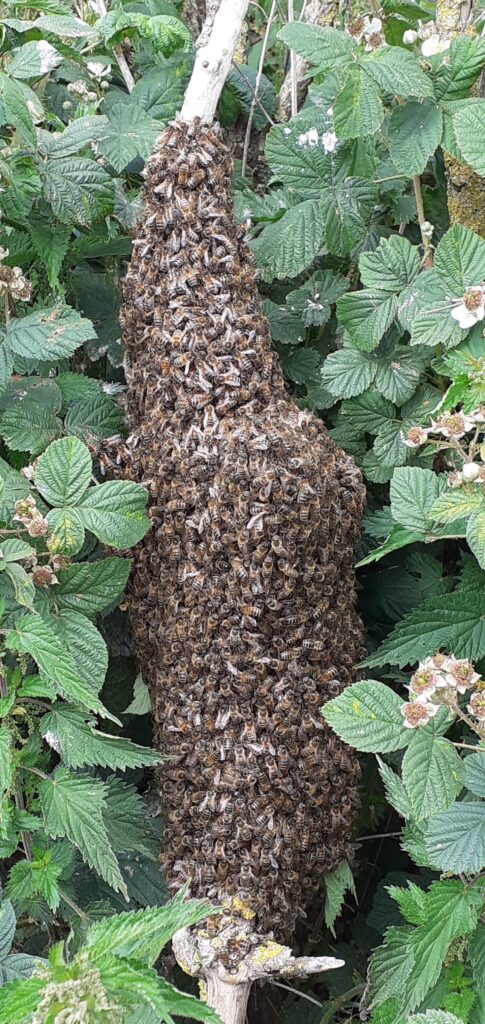
Bees Swarming
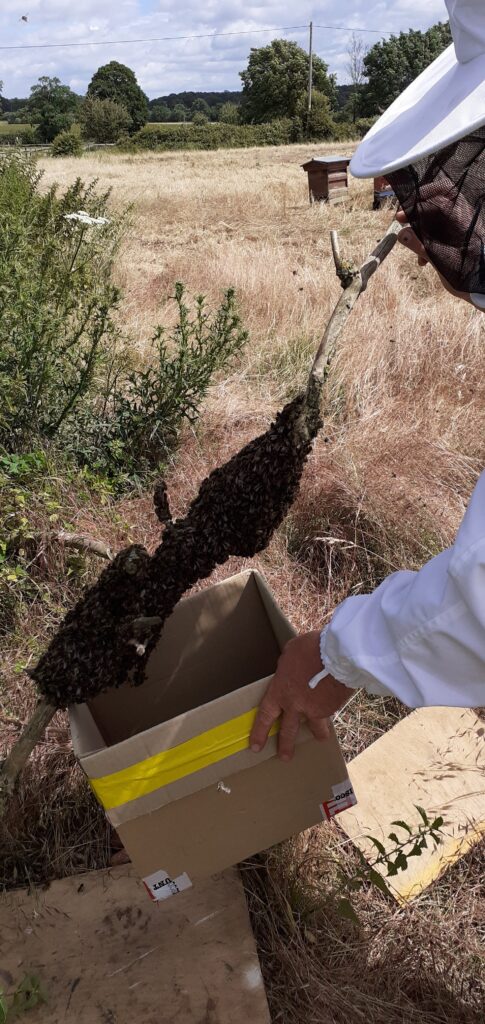
Trying to collect the swarm
So, this is how it all started – my wonderful and dearest friend suggested if I fancy coming out to help inspect some of his honey bees / beehives – well my curiosity took the best of me and I volunteered to help.
First thing I had to do was to wear protective bee suit very becoming. Once I approached the beehive my friend notice that one of the beehives has swarmed this is because the old queen is leaving the colony taking with her most of her loyal subjects to look for a new home, so that the new queen can take over the existing beehive. I realised swarming is the perfect opportunity for the beekeeper to collect the swarm and have another new hive – obviously, this is another way of adding more hives to your apiary (is where you keep your collection of beehives).
The beehive consist of three castes of bees – The Queen only breeding female in the colony, Workers (a large number of female worker bees), Drones ( a number of male drones at certain times in the year) and they all have different tasks to perform within the colony. Found out that not all bees can sting for instant the Drones can’t sting – being a male once the females have used them they get starved and kicked out of the colony lol (tough love – the only purpose in life for the Drones is to mate the queen and then good bye Vienna).
I helped the best I could to re-house the old queen with her loyal subjects into a brand new hive -during this process few of the workers decided to cling onto my protective clothing and the little blighters managed to sting me through the clothing – oh boy that was very painful – the baptism of Fire.
We continued to inspect the rest of the hives checking to see if they are healthy and disease free, that the queen is laying and producing enough eggs. Checking the hives / colonies gives the beekeeper the opportunity to mark the queen which will aid in future inspection so it’s easy to locate / spot her in the hive – also to establish that the colony is producing excess honey for the beekeeper to remove.
Did you know that the bees can travel up to 3 miles from its hive to collect nectar and pollen?
Some of the other products from the beehives as well as honey are beeswax, propolis (bee glue), flower pollen, bee pollen and royal jelly – you can collect pollen from the beehive for allergies.
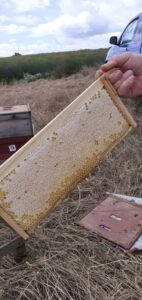 Benefits
Benefits
The benefits of consuming local honey has properties to help combat seasonal allergies, acts as a natural antioxidants because it contains plant chemicals that can kill unwanted bacteria and fungus. Obviously, this depending on the location of the beehive and what they are collecting.
Some of the other benefits are:- Antibacterial and antifungal properties, Heals wounds effective germ killer aids in tissue regeneration, also a potent prebiotic, soothes sore throats and boost immunity.
Well I can go on and on about beekeeping and honey it’s a very complex subject as it all depends on the nature, location, weather etc.
My wonderful friend amongst doing other jobs he is also a beekeeper who offers beekeeping courses in the summer. If anyone is interested in learning all about beekeeping I know just the person who can help you with an “Introductory course to beekeeping”. Get in touch with me info@jennysyogaloft.com and I shall put you in the right direction.
Take care of yourself and Bee good – Jenny x
“The busy bee has no time for sorrow” – by William Blake 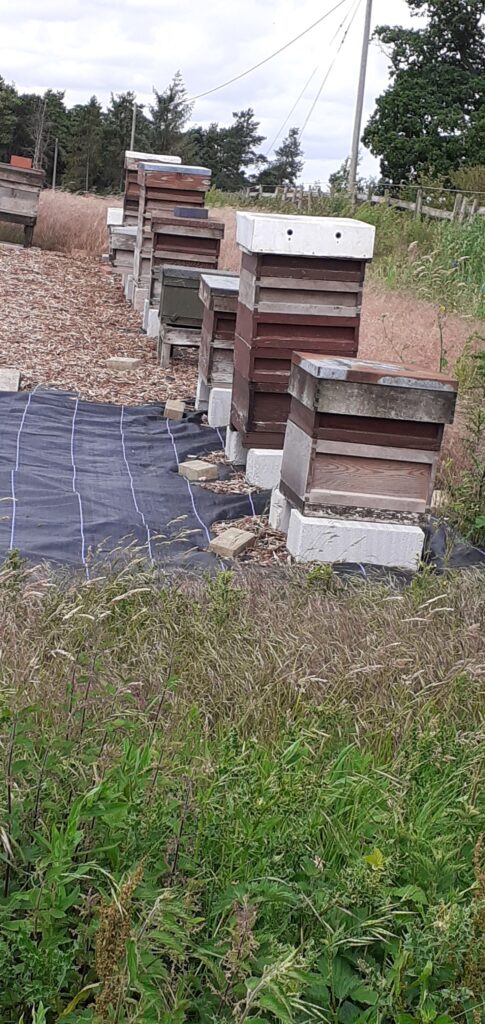
“Words are like bees – some create honey and others leave a sting”
“The men of experiment are like the ant; they only collect and use. But the bee…gathers its materials from the flowers of the garden and of the field, but transforms and digests it by a power of its own” – Leonardo da Vinci
The bee is more honoured than other animals, not because she labours, but because she labours for others – St. John Chrysostom

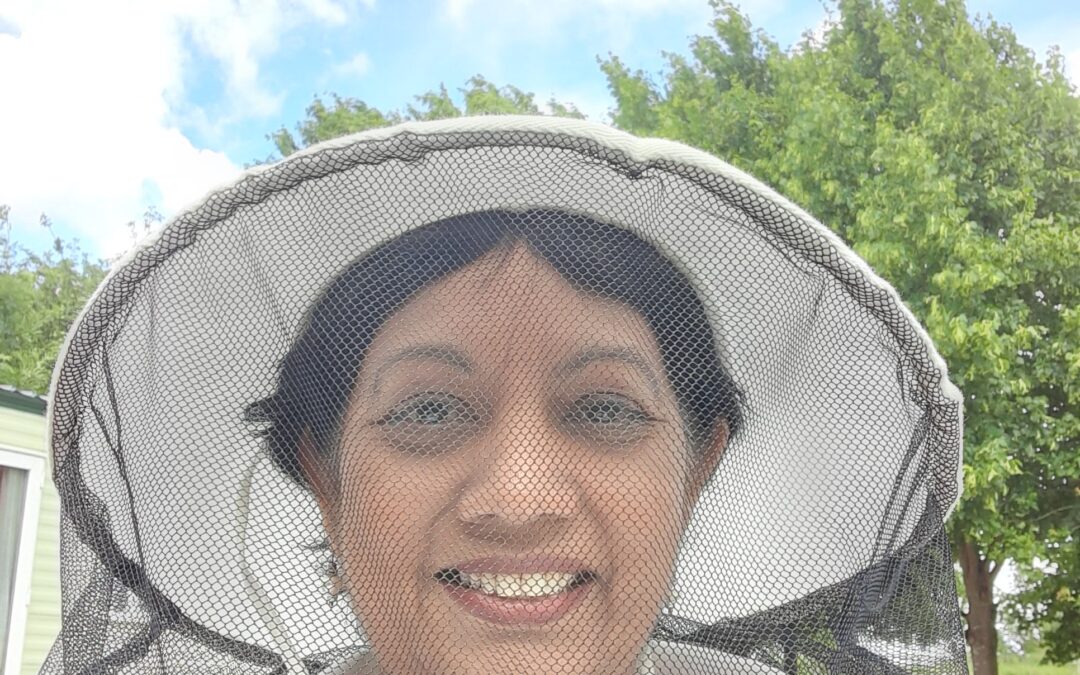
Recent Comments